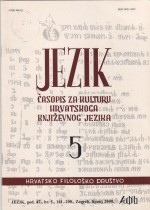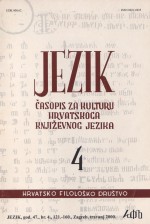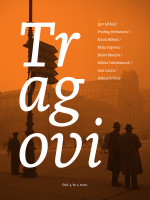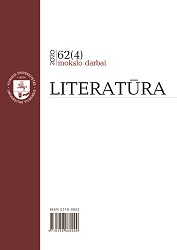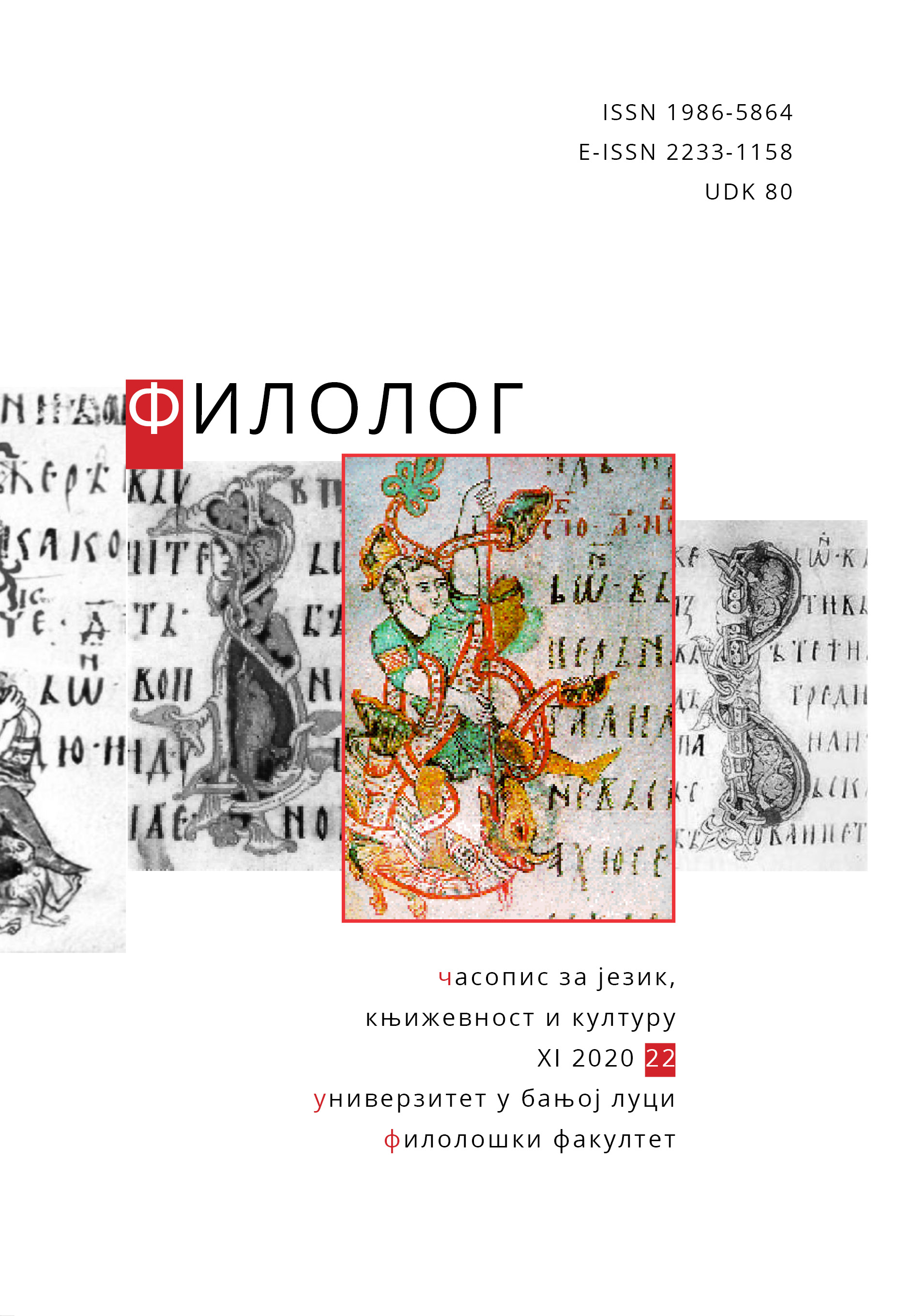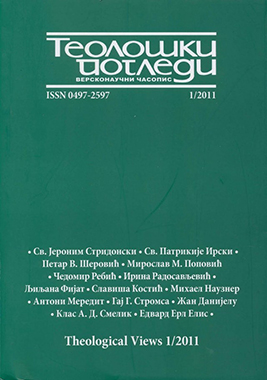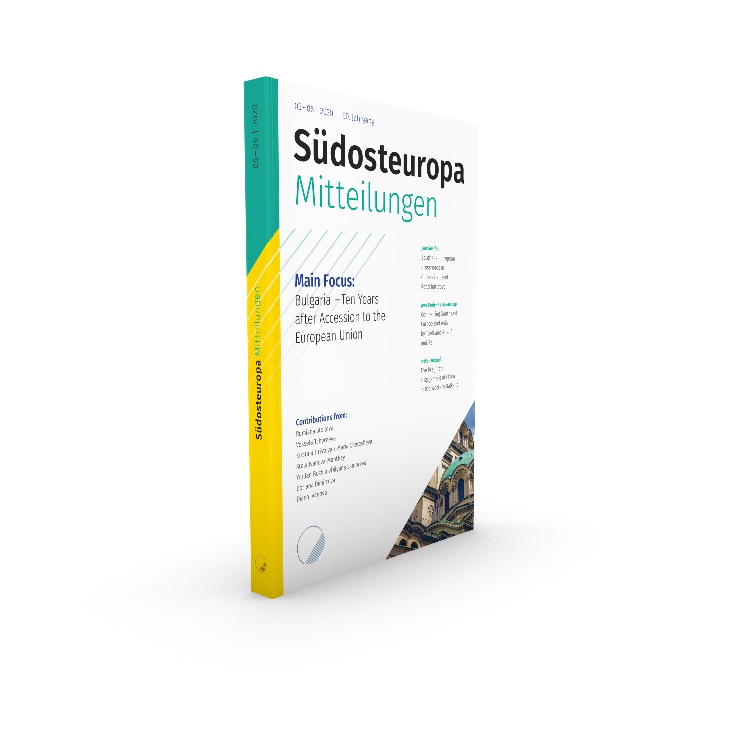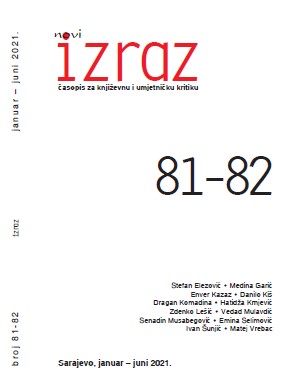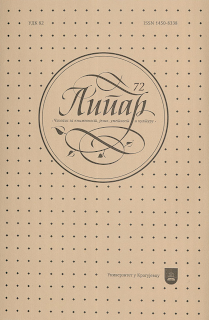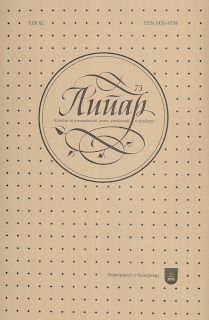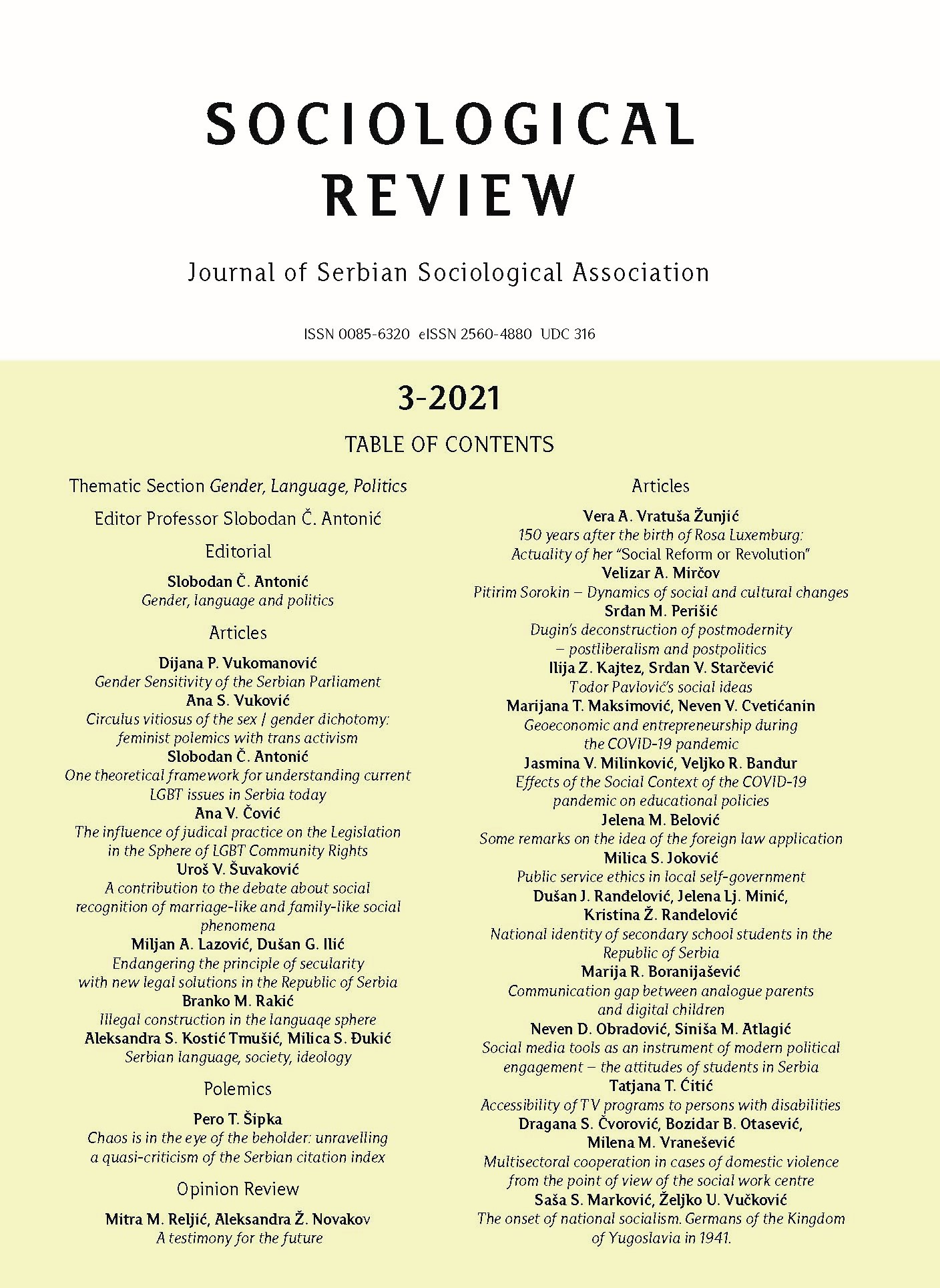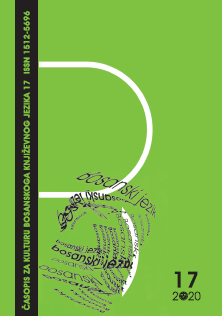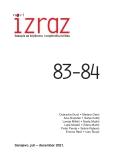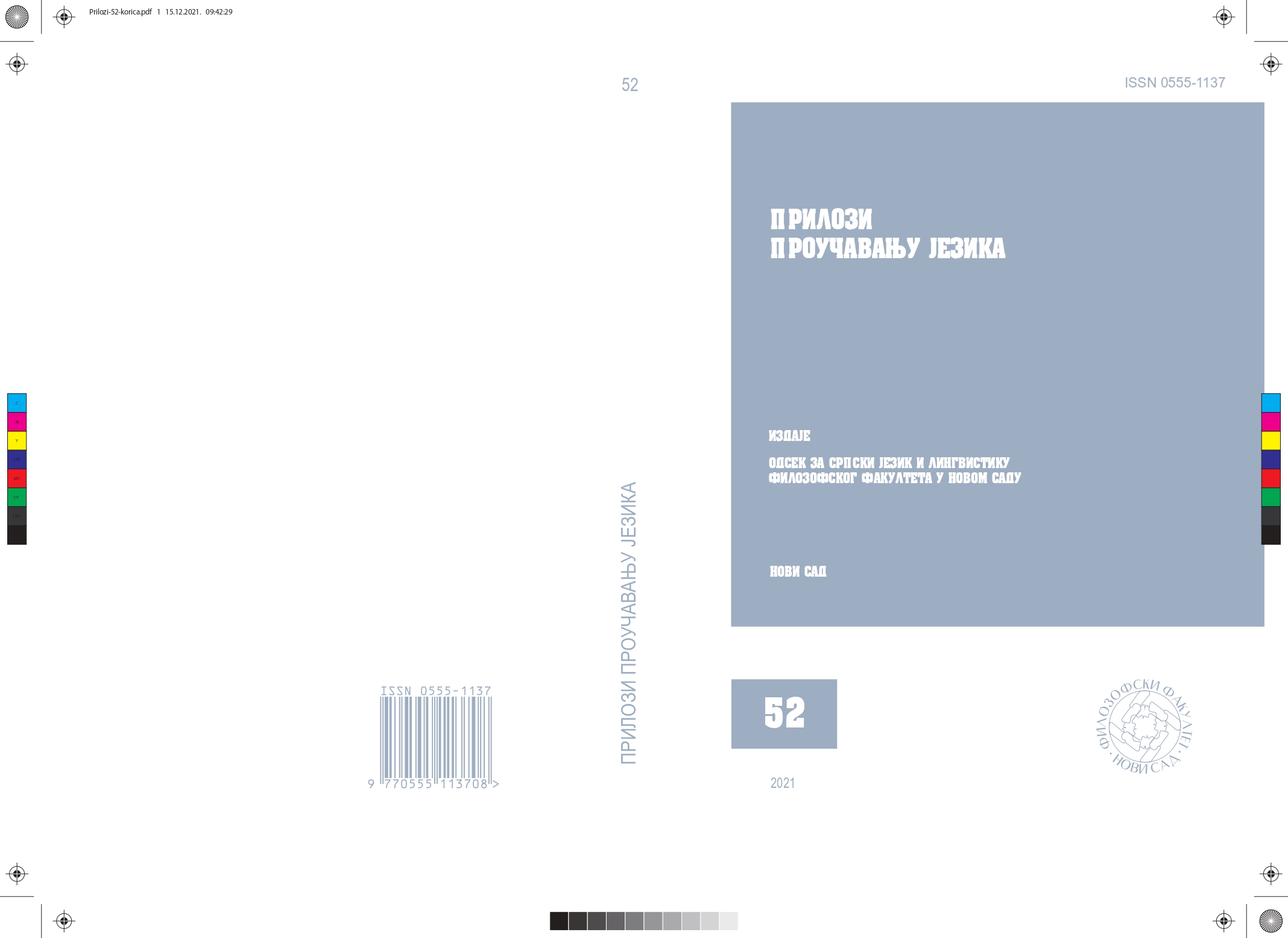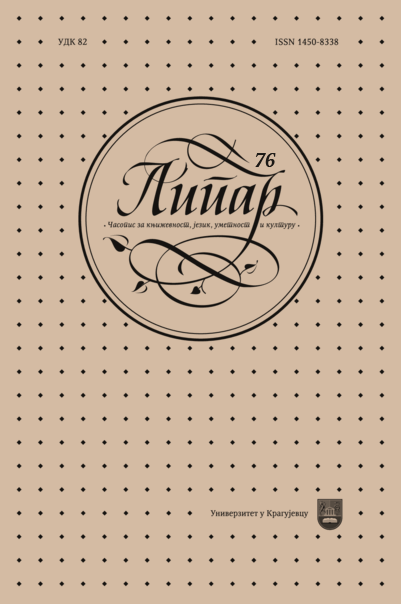Author(s): Aleksandra S. Kostić-Tmušić,Milica S. Đukić / Language(s): English,Serbian
Issue: 3/2021
Language is a phenomenon that is inseparable from all spheres of life. Since language is the basic means of communication, its social importance is indisputable. Without language, the society could not function; on the other hand, language could not “live” if there was no use of it. The characteristics of a nation are reflected in language, while, in turn, language makes a nation to a great extent; it constitutes a socio-cultural reflection. It is related to history, politics and different institutions, such as church and school, and it unstoppably performs its function in these areas. The use of language differs depending on its power and status in the society. Language influences the society with its power, but social changes also largely contribute to language changes. Both society and language are alive, so changes occur concurrently in both spheres. There are many different ideologies that have spread their influence in the history of the society development. One of them would be the ideology of language standard, or the proper use of language, which will be separately elaborated in our paper. Our civilization is founded on rules, or different norms of behaviour present in language and in the society. Communication is successfully realized by observing the existing conventions, without which the language system would not survive. We unconsciously accept language ideologies and rules, not paying attention to the great power of language in everyday activities. Language, society, politics, rules and changes are the subject of this article, and they are observed in their specific features and comparison.
More...
